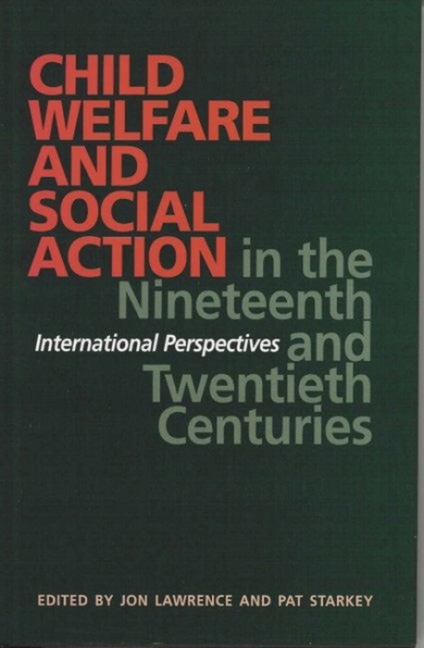Book contents
- Frontmatter
- Contents
- Acknowledgements
- Introduction: Child Welfare and Social Action
- I Gender and ‘Delinquency’
- II Child Emigration
- III Rethinking Philanthropy
- IV ‘Welfare States’ and Child Welfare
- 10 ‘Fixing’ Mothers: Child Welfare and Compulsory Sterilisation in the American Midwest, 1925–1945
- 11 A Spirit of ‘Friendly Rivalry’? Voluntary Societies and the Formation of Post-War Child Welfare Legislation in Britain
- 12 Mental Incapacity, Ill-Health and Poverty: Family Failure in Post-War Britain
- Notes on Contributors
- Index
12 - Mental Incapacity, Ill-Health and Poverty: Family Failure in Post-War Britain
from IV - ‘Welfare States’ and Child Welfare
- Frontmatter
- Contents
- Acknowledgements
- Introduction: Child Welfare and Social Action
- I Gender and ‘Delinquency’
- II Child Emigration
- III Rethinking Philanthropy
- IV ‘Welfare States’ and Child Welfare
- 10 ‘Fixing’ Mothers: Child Welfare and Compulsory Sterilisation in the American Midwest, 1925–1945
- 11 A Spirit of ‘Friendly Rivalry’? Voluntary Societies and the Formation of Post-War Child Welfare Legislation in Britain
- 12 Mental Incapacity, Ill-Health and Poverty: Family Failure in Post-War Britain
- Notes on Contributors
- Index
Summary
The problems posed for local authorities by numbers of poor families were brought to public attention by the account of their wartime activities published by members of Pacifist Service Units (PSU) based in Liverpool, Manchester and Stepney during the Second World War. The efforts of PSU were rewarded by support from public figures and its establishment as a permanent peacetime voluntary social work agency, renamed Family Service Units (FSU). Its work attracted the attention of mental health agencies and Medical Officers of Health, partly as a consequence of the creation of a tripartite structure for the new National Health Service that vested responsibility for environmental health with local departments of public health, so that dirty homes and children were classified as medical problems. This chapter will suggest that the close association between PSU/FSU and public health doctors meant that poor and poorly functioning families were pathologised, frequently in terms of the intellectual inadequacy or mental illness of the parents. Children were evidence of parental failure and, in the case of those families who came to be labelled ‘problem families’, of a syndrome which was generally assumed to have a defined aetiology and prognosis. Little attempt was made to develop a critique of the economic and social conditions which contributed to the families’ situation.
The professionalisation of social work, the large increase in the numbers of those who called themselves social workers, and new methods of dealing with family difficulties weakened the influence of public health doctors after the mid-1950s. To some extent, therefore, changes in methods of helping those who came to be designated problem families may be understood as an aspect of the rise and fall – the working out of struggles and ambitions – of two professions, medicine and social work. It was a function of the increased professionalisation of social work, which was in part the result of a wider acknowledgement of its role in post-war Britain and a consequent increase in the number of courses designed to equip social workers for their task. Newly confident of their task and status, social workers wrested from public health doctors the care of families deemed to be at risk because of parental incompetence or neglect.
- Type
- Chapter
- Information
- Publisher: Liverpool University PressPrint publication year: 2001



